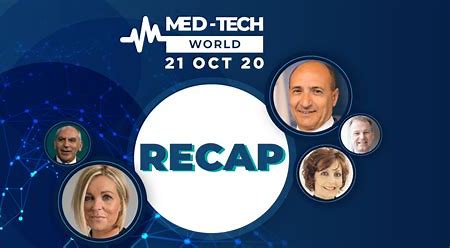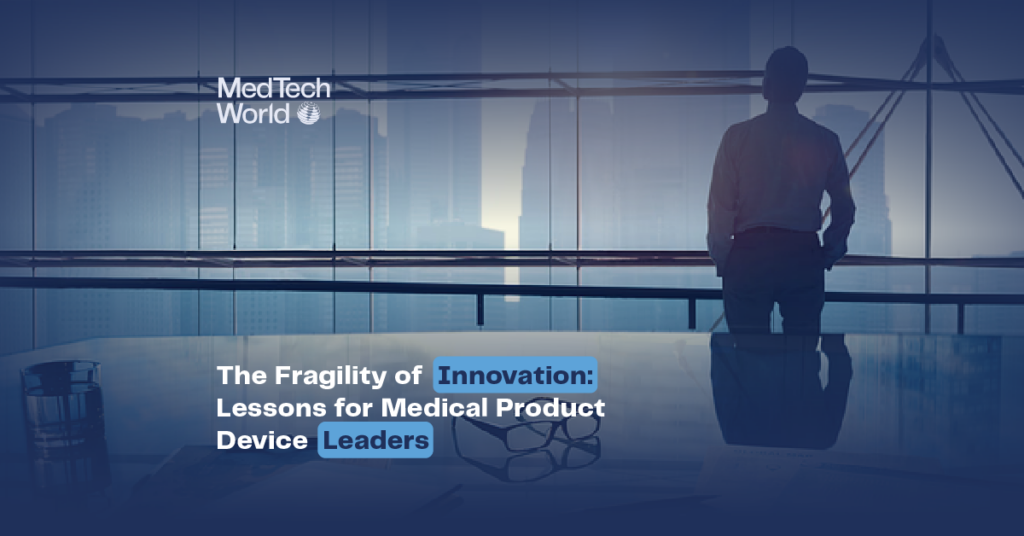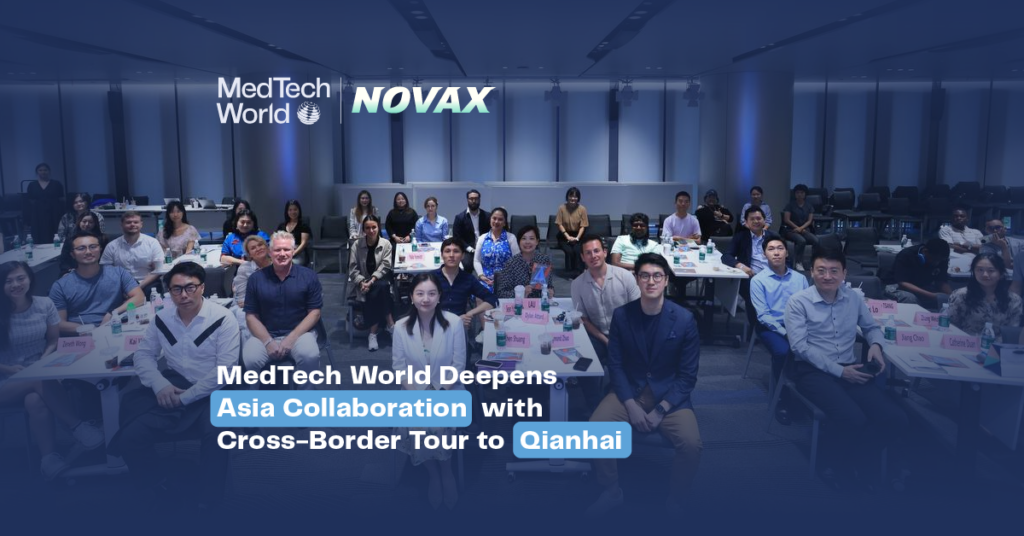
Technology’s the Cure: Med-Tech World Virtual Sumit 2020
As the Med-Tech World Virtual Summit comes to an end we take a look back at the highlights of the day
The opening of the summit was a speech by the Deputy Prime Minister and Minister for Health of Malta, Dr. Chris Fearne, who welcomed the viewers, and said how Malta can truly be a Med Tech and digital health innovation hub, due to it being a member of the EU and the Commonwealth and it being English Speaking, it stands as a perfect location for the gathering of medical and technological experts from all over the world. He then continued to say that this is an “unprecedented growth of Med Tech, which is taking place despite and possibly because of the challenges of COVID-19”.
Regulation & Business
Following the Deputy Prime Minister, the first top-branch of the day was addressing regulation and business, in which there was a link between innovation and implementation, tackling the challenges in achieving both, and questioning how the future will look like for UK companies post-Brexit, plus addressing the impact of the pandemic that hit this year and how the medical world reacted in a time when one has to make crucial decisions in a cloud of uncertainty. Dr. Christopher Barbara, Chairperson of the Department of Pathology at Mater Dei Hospital talked on the importance of having the medical world work as one in times of such undetermined circumstances saying
“We’re all working together. And if we find something which doesn’t work, we quickly alarm so that this is transmitted quickly to our neighbours”.
Patient Focused Tech
The patient is the focus of medicine, therefore, the following panel addressed the medic-patient technologies that were being introduced in recent times, creating completely novel circumstances such as remote diagnosis and using data and analytics in customising and optimising treatment, with Professor Sandro Wartzack, Head of Chair Engineering Design FAU saying how until now ‘the user and user product interaction is still widely neglected’, but that eventually digital human models could successfully be used in product engineering of Users Centered and Biomechanical products.
Med Tech Innovations
Complimenting the latter, the next section of panels then moved on to addressing truly fascinating and exciting topics ranging from Artificial Intelligence, robotics in operating theatres and showcasing successful applications of it, smart implants in orthopedic surgery, engineering for the brain to cure brain aneurysms, to automation in catheter manufacturing, examining and taking in the consideration all the process required for making it feasible and efficient. Addressing AI, Dr. Nupur Kohli made a very interesting remark saying how
“When AI can help in the process of decision making and take pressure from the medical information overload that the doctors receive, I believe AI can be a productivity enhancer”.
Digitised Healthcare
Through the topic that followed, the panelists returned back to COVID-19 as a subject of discussion, initiating this section of panels with the addressing of changing the public perception to allow digital health ecosystems to flourish, with the pandemic and the public’s reaction to it serving as a great example in observing how the shift was received, having Professor Charmaine Gauci, Superintendent of Public Health in the Ministry of Health and Associate Professor in the University of Malta, saying how with regards to Malta, Covid-19 really made certain tech advances which should have been done before, having had them delivered swiftly in a manner that would probably not have been achieved had it not been for the urgency created by the pandemic.
Followed by a linked subject on Health Apps, their reliability, effect, and how we can improve them, all of which was then concluded and succeeded by issues of cybersecurity, and AI and patient confidentiality, where Attorney for IT Law Thannos Rammos emphasised that
“When we are talking about Ai and big data algorithms, we are always talking about something that may cause scepticism amongst a number of data subjects and especially patients. “
Investments in Med-Tech World
The penultimate topic of discussions, revolved more around the business side of things, addressing all corners of the industry, almost in a chronology of sorts. The initial one was the struggles of early-stage Med-Tech startups, were the panel brought up several common challenges of the process and of fundraising, and how best to approach investors. This was followed by a speech by CEO of Remtec Talent Management Ltd Nigel Job, where he brought up the interesting observation that to hire and retain talent during the Covid-19 crisis, medical companies, especially companies need to compete even harder.
The discussion then went on to address the growing Chinese market and ho the country is a great competitor of the western medical technology companies, and concluding this branch of subjects, the last panel addressed the topic of entrepreneurship, technology and innovation in Med-Tech and the necessity of having a robust med tech and digital health ecosystem that enables the industry to move on in the right direction. Director of the Centre of Entrepreneurship and Business Incubation at the University of Malta remarked that for him
Innovation really means converting ideas into invoices… this is about a process whereby we find research findings that come out of academic research typically and are then is converted into something of commercial value.”
Future Trends
The natural closer for the day was a branch of topics addressing the future of the medical technology world having a range of subjects that are incredibly fascinating, again ranging from applying VR and how it will revolutionize medicine, and not just that but also improve and provide more understanding on patients’ therapy experience, having CEO of Softcare Studios Valentino Megale emphasise on the necessity to include education on this new VR technology, and he also pointed out how
The value of VR is that it offers us the opportunity to experience any kind of interaction in space just with a headset wherever we are, and wherever we need it. So, it provides an experience on demand.”
The final panel addressed another very interesting topic with a speech by Dominique Karetsos, CEO and co-founder of The Healthy Pleasure Group, where she addressed how innovation in sexual health doesn’t stop in the lab but that we should pave the way for it to follow the road to behavioral change, stressing her observation that the
Industry needs consumer focused communication to intersect at the points of our actual human lifestyle needs… the power play is to transform your patient proposition and create a private proposition that response and follows the road to behavioral change.”
During the summit, moderator and presenter Jeremy Micallef addressed the poll results that were going on on the live-chat-stream, and with regards to the first one, the question was if you would feel comfortable consulting a doctor on a digital health platform, to which 90% of viewers voted yes, and the second and last question was ask the viewers which tech innovations they think will change the future of medical practice, to which most people voted for AI-powered self-diagnosis, followed by wearable health monitors.




